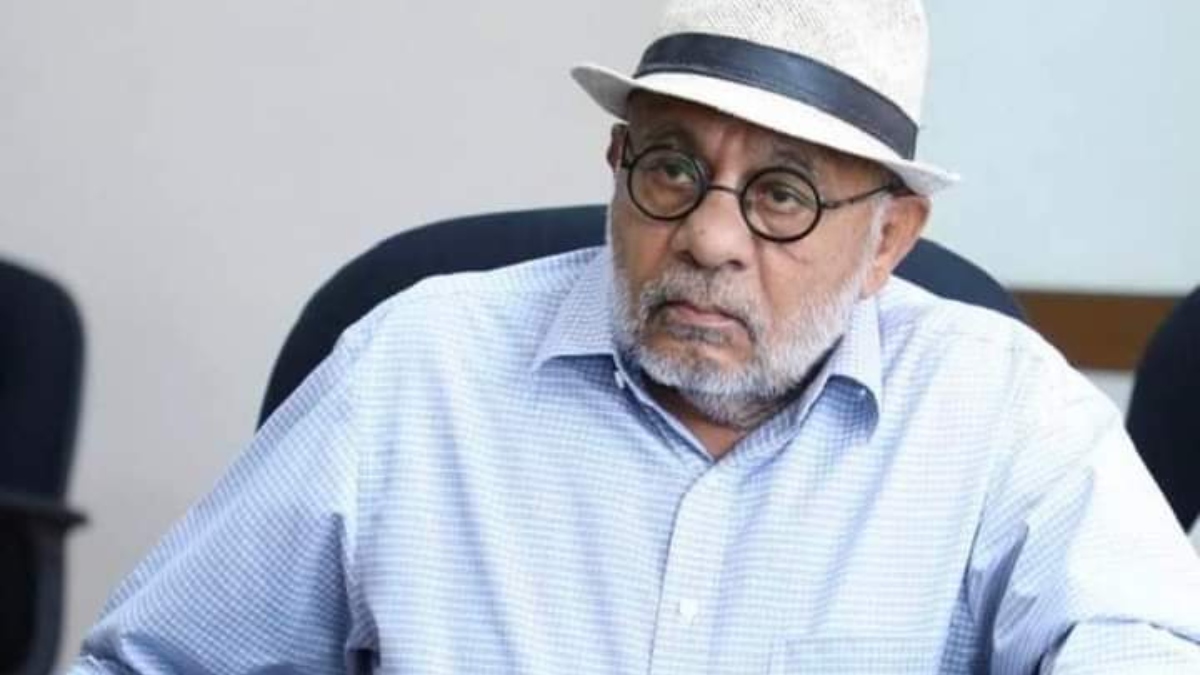Its founder, Henk Rogers, looks to replace it with his more globally minded “Blue Planet Alliance.” The Honolulu-based clean energy nonprofit Blue Planet Foundation is being phased out after some 17 years of pushing for renewable energy reforms in Hawaii, according to its founder and chairman, Henk Rogers. In its place, Rogers says he intends to relocate his similar but more internationally focused New York-based venture, Blue Planet Alliance , to Honolulu by October.
Blue Planet Foundation played a key role in setting Hawaii on an ambitious path to fully ditch fossil fuel energy sources for wind, solar and other renewable sources by 2045. At the time, that energy goal was the most ambitious in the nation , and it helped pave the way for larger and more populous states such as California to follow suit . The island state now boasts the most rooftop solar in the country on a per-capita basis.

However, in recent years the local think tank has struggled to find more of the individual donors needed to replace Rogers as he diverted more of his dollars to Blue Planet Alliance, he said last week. “My idea was I would start the foundation and when I moved on other parties would take over and fund Blue Planet Foundation,” said Rogers, a local philanthropist and entrepreneur who controls rights to the popular video game Tetris. The problem with naming the Honolulu entity Blue Planet Foundation, however, was that “everyone thinks they give away money” like a typical foundation instead of taking direct action against climate change and trying to reshape local energy policy, Rogers said.
“I was very naive when I started the whole thing.” Previously, Rogers gave about $1 million a year to Blue Planet Foundation, he said. Now, with many of those dollars going to Blue Planet Alliance instead, “it’s become a little more complicated.
” “What distinguishes Blue Planet from many others was the analysis that they could do and bring to the table.” A ProPublica analysis of the group’s most recently available tax records show that in 2022 Blue Planet Foundation collected some $968,000 in revenue, which was the lowest amount it had received since 2014. when it took in $944,000.
Blue Planet Alliance, meanwhile, launched in 2020 as a way to bring civic, political and utility company representatives together from island nations and territories to learn how they might replicate Hawaii’s clean-energy policies or achieve something similar, according to Rogers. So far, Blue Planet Alliance has convened two cohorts of island nations this past October and May. Some of those who have participated include representatives from Fiji, Vanuatu, Puerto Rico, Palau, the Solomon Islands, Guam and the Commonwealth of Northern Mariana Islands.
“Hawaii is the source for all the other islands. They look to us for leadership because we did it, we’re on the path,” Rogers said. He added that the plan is for Blue Planet Alliance to fully relocate to Hawaii with his brother, Francois Rogers, serving as its executive director.
Eventually, the group might convene cohorts of representatives from other U.S. states that still lack clean energy benchmarks, he said.
Everyone else working for Blue Planet Alliance is either a contractor or subcontractor, he said, adding that “we’re not removing or firing people in New York.” Hawaii state Sen. Chris Lee, who helped craft the ambitious 2015 law setting the state on course to be fossil-fuel free by 2045, said that Blue Planet Foundation was instrumental in getting that policy passed.
“What distinguishes Blue Planet from many others was the analysis that they could do and bring to the table,” Lee said Wednesday. “No one (else) had done a deep dive looking at what the numbers actually showed was possible, both for energy, for reducing the cost of electricity or creating jobs and investment, and ultimately for taking that next big step that was necessary to move away from an unending reliance on imported fuel,” Lee said. Rogers added that Blue Planet Foundation worked with former Hawaii Govs.
Neil Abercrombie and David Ige to appoint members to the state Public Utilities Commission who were more supportive of the push to renewable energy sources. Those steps helped compel the state’s major power providers, Hawaiian Electric Co. and Kauai Island Utility Cooperative, to move more aggressively to phase out coal- and oil-fired plants in exchange for more wind and solar energy sources.
“Henk Rogers and the Blue Planet Foundation have served as tireless advocates for our environment and our community. We appreciate Henk’s leadership and look forward to his future endeavors,” Hawaiian Electric spokesman Darren Pai said in an email Wednesday. Blue Planet Foundation’s last executive director, Melissa Miyashiro, left the group in February and now serves as president and CEO of the Hawaii Alliance of Nonprofit Organizations .
Since then, the rest of the group’s employees have gradually left, Rogers said Tuesday. The plan to replace Blue Planet Foundation with Blue Planet Alliance in Hawaii still has to clear legal hurdles, Rogers said, but he aims for the process to be done before the next cohort of islands meets in October. Civil Beat’s coverage of climate change is supported by The Healy Foundation, Marisla Fund of the Hawaii Community Foundation and the Frost Family Foundation.
As a nonprofit newsroom, we rely on the generosity of readers like you to keep all of our stories and resources free during election season—and every day. Make a gift today to help us keep our news free and accessible for everyone . And if you’re able, please consider a monthly gift to support our work all year-round.
.



















